Association MoSt is an organization established in Split, which acts at the local, regional and national level. It is founded on the values of volunteer work, humanitarian spirit, solidarity, and respecting diversities and human rights.
Đordana Barbarić, Head of the Knowledge Center for Social Inclusion and Poverty Mitigation, has told us how this association provides support to those who need it the most and raises the quality of life of children, youth and citizens of other age categories.
How was Association MoSt established? What was the initial idea and how did your mission take shape?
Đordana: Association MoSt is a non-governmental, non-political and non-profit organization which was established in 1995 with the aim of improving the life of children, youth, people living in poverty and the homeless; however, the idea about its work had already started to develop in 1993.
Within the Hedip program of the World Health Organization, in October 1993, a group of experts from Split and employees of various institutions that work with young people were introduced with the Italian model of work, after which they affirmed the idea of “peer support in the work with juvenile offenders”, recognizing the need to work with young people with behavioral problems in a completely different way and include young assistants in that endeavor. At the time, that was a completely new and innovative approach, and we started off with great enthusiasm although without any space, equipment, money or support…but with a huge turnout of young volunteers who wanted to participate.
Since 2000, MoSt has carried out various programs, projects, actions, and campaigns aimed at children and youth at risk and with behavioral problems, the homeless, citizens living in dire poverty and volunteers in the community. It is odd to recall and talk about the very beginnings, when we started providing care for destitute young people and some destitute adults, on our own, with no working space, no money, no telephone...but we had a wish and will to make changes in the city we lived in, knowledge and skills to develop our mission step by step, year after year.
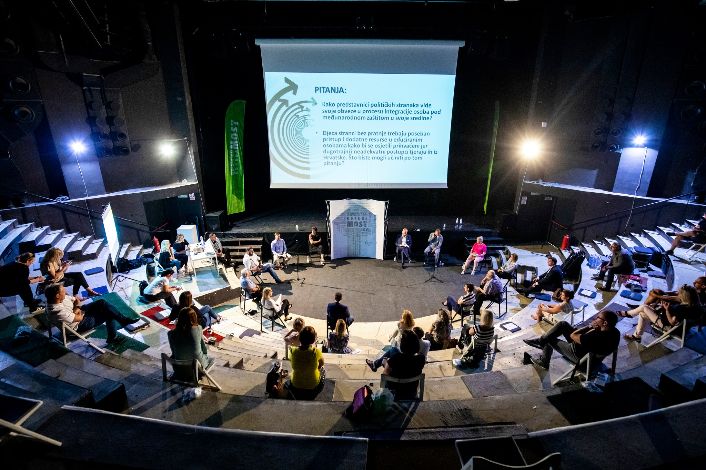
What was your personal motivation to work in the non-profit sector?
Đordana: The motivation of each and every one of us in Association MoSt comes down to this: “provide concrete and direct assistance and support to people in need”.
My personal motivation in the beginning was to “make changes in the approach to young people with behavioral problems”, and today the motivation is to connect everyone at the local and national level working within the scope of our activity and to develop a model of “communities caring” for all vulnerable groups, so that truly no one would be hungry, without a roof over their head or without support.

Đordana Barbarić, voditeljica Centra znanja za društveno uključivanje i smanjenje siromaštva
How has the COVID-19 crisis affected the work of the Association? To what extent have your activities changed, and what has been your main focus in the recent period?
Đordana: Throughout the pandemic year, we, as all citizens of the world and many people in helping professions, faced completely new circumstances in working with our beneficiaries. It was a huge challenge to ensure proper epidemiological conditions for the operation of our Homeless People Center, to ensure that everything ran smoothly, and particularly to provide assistance and support to people living in the street. There is no lockdown in social care, our beneficiaries need food and accommodation every day, children and families that we work with need psycho-social support; therefore, we started using Internet technologies and introduced various forms of contact.
We conducted counselling online and directly with all safety measures in place, we connected volunteers and children and youth from our program organized by the Center for Support of Children and Youth with Behavioral Problems, we enabled daily assistance in learning and peer support. This period opened up many questions about how to make our social care system better and more efficient, which is why we wrote appeals to competent institutions, promoted citizen solidarity via social media and encouraged citizen philanthropy. We encouraged work within the networks we established at the national level (Croatian Homeless Network, Croatian Network of Social Supermarkets), carried out joint actions, organized roundtables, conferences… A new positive circumstance in these difficult times was the possibility of free learning and training through webinars organized via ZOOM and other platforms; in fact, in this difficult 2020, we did not stop and we did everything to achieve progress in the “new normal”.
In 2020, we prepared several hundred “corona packages” in the form of backpacks containing all necessary hygienic products and products essential for adhering to epidemiological measures, which we distributed to beneficiaries who do not have the means to procure them. For this endeavor, we received the award of the Belgian foundation and new funds for the same and similar activities aimed at vulnerable groups.
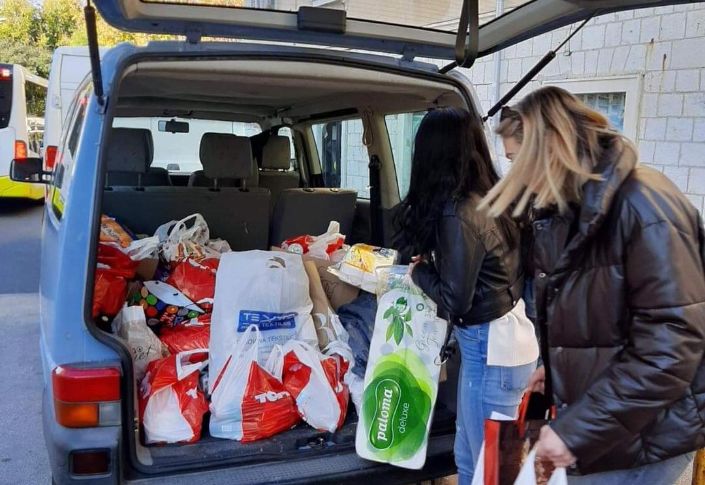
Which activities are currently in your main focus? What are the most important plans for 2021?
Đordana: Our focus has always been, and will continue to be the work with our beneficiaries and fulfilling all obligations regarding the programs and projects we implement, as well as constant contact with the public so as to provide information about the needs of our beneficiary groups in these new circumstance and promote the involvement of the entire community.
In addition to the daily work with our beneficiaries, we engage in various forms of communication with decision-making bodies at the local and national level, in order to improve the work, particularly with regard to providing care for the homeless.
Our focus will remain the same, and given the circumstances and effects of the pandemic, next year, we will focus on occupational therapy activities of our beneficiaries, connecting stakeholders in poverty mitigation and those who provide support to young people with behavioral problems, and on promoting solidarity in the community.
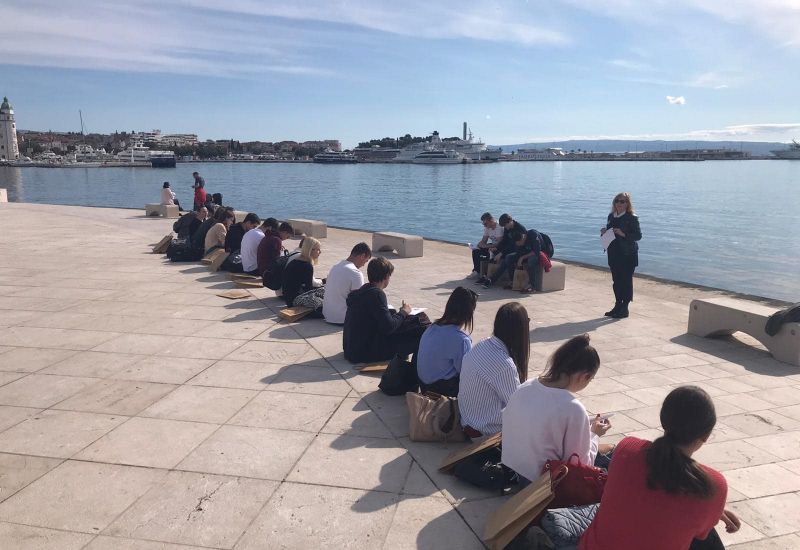
You are very committed to the development of volunteerism within the community. How does Association MoSt contribute to the development of volunteerism in Croatia? How do you reach volunteers and motivate them to engage in various activities?
Đordana: MoSt continuously and systematically develops and affirms youth volunteering in the community, peer support in the work with various groups; it encourages, strengthens and connects volunteer teams of Split high schools, promotes student activism, organizes training courses, panels, charities for the citizens and city of Split. In 1999, the program was launched by a public call to young people to engage in training and become “peer helpers” to youth at risk and with behavioral problems. Around twenty young people answered the call, and since then, several thousand young people have gone through training and engaged in assisting in the work with vulnerable groups and in numerous initiatives for the benefit of our city.
Peer helpers have also become an officially accepted and important segment of preventive work, but MoSt has made a step further and affirmed youth volunteer work for the benefit of the city they live in. There has been a series of initiatives where young people have done the landscaping of kindergartens in Split, cleaned beaches, river sources and Marjan forest park, collected food and delivered food packages to hundreds of citizens living in poverty. By organizing actions with a concrete goal, in a single day, MoSt can gather over 400 young volunteers whose contribution to the fight against poverty and care for vulnerable groups is extraordinary. They respond to our calls via social media or to the information in the media that MoSt is organizing an initiative; we receive applications almost on a daily basis, and by affirming youth volunteer work, we have reduced the stigma and numerous prejudices that young people in Split are lethargic, inactive and disinterested in the world around them.
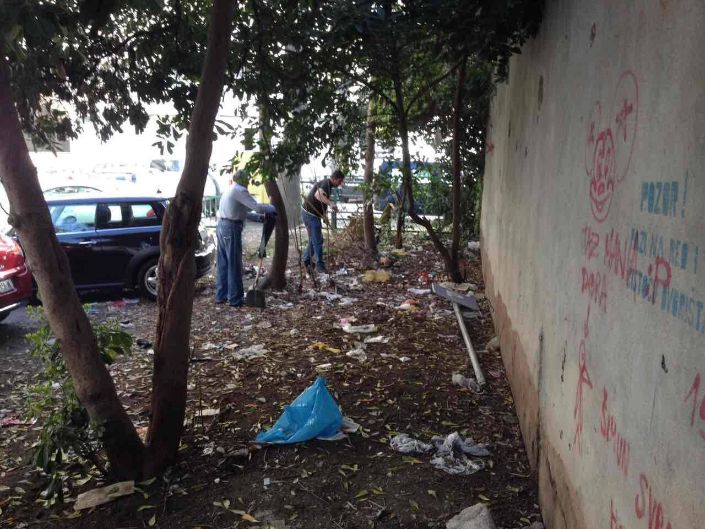
How is the work of Association MoSt financed? Which types of donors do you cooperate with and in what way? How can we all support your work?
Đordana: Nowadays, MoSt has numerous sources of funding through tenders at the local, national and EU level. For many years, a number of donors have provided significant financial support (the City of Split, Split-Dalmatia County, National Foundation for Civil Society Development, Ministry of Health, Ministry of Labor, Pension System, Family and Social Policy, Ministry of Science and Education, Office for Human Rights and Rights of National Minorities, Office for Combating Drug Abuse), as well as international foundations, such as AED and CNF. In the last several years, we have been financed through EU funds and the European Social Fund, while the number of donations from individuals, citizens and companies has been growing.
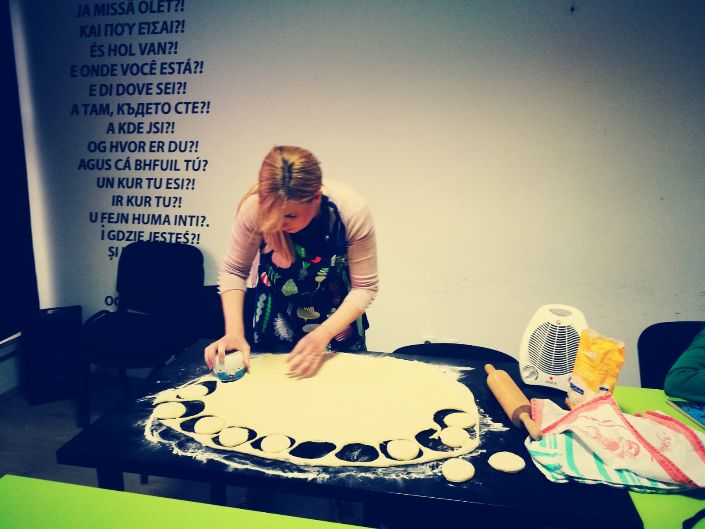
How does your Knowledge Center for Social Inclusion and Poverty Mitigation work? What do your training and advocacy activities include?
Đordana: In 2012, Association MoSt and the National Foundation for Civil Society Development signed the agreement on development cooperation between knowledge centers for social development in the Republic of Croatia.
Knowledge centers develop various forms of activities by researching and analyzing public policies; they transfer specific knowledge in the Republic of Croatia and other countries, develop social potentials and knowledge bases, and advocate positive social changes.
Within this program, MoSt has transferred experience and specific knowledge regarding their work with young people with behavioral problems and the homeless to other environments; fostered innovative work models in social inclusion and poverty mitigation; advocated networking of stakeholders for the purpose of achieving positive social changes; conducted research and analyses of public policies in this area.
Within the Knowledge Center, MoSt has promoted multiple local and national networks, had an impact in amending regulations on vulnerable groups, supported partnerships at the national level and the level of SE EU. In the following five-year period, the Knowledge Center will develop criteria for creating the concept of “caring communities” (cities caring for youth, solidary cities etc.) and work on informing the public by preparing special information maps in print and in digital form.
Such concepts would raise the awareness of decision-making institutions on the need to develop various forms of support to vulnerable groups, and thus contribute to their social inclusion and mitigation of their risk of poverty.
MoSt's advocacy for changes always begins with a very argumentative and clear public statement about a social issue or needs of a certain vulnerable group, followed by a series of activities aimed at networking key stakeholders and establishing channels of communication with decision-making bodies (panels, roundtables, campaigns, working meetings, public initiatives, calls etc.)
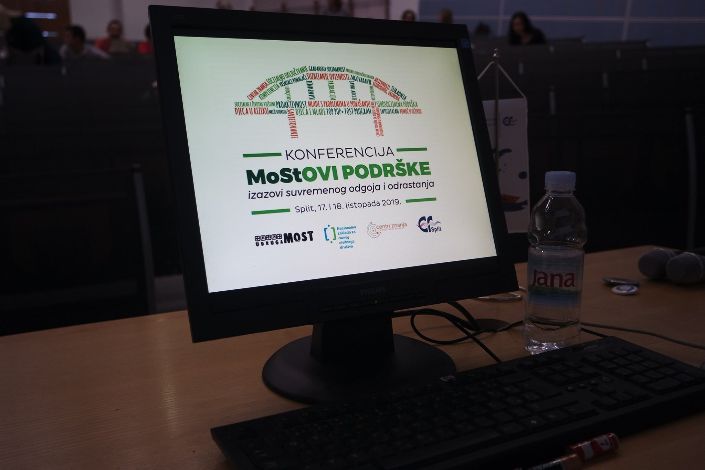
The Homeless People Center has existed for 20 years. How does this center work and how do you provide support to the most vulnerable through its activities?
Đordana: Care for the homeless has started in 2000, in cooperation with the City of Split, with the opening of the first Homeless Shelter in Split. A group of MoSt enthusiasts began refurbishing a building to accommodate 12 people in two rooms, and, together with activists and volunteers, they started looking for homeless people around the city and informing them about the possibilities of accommodation.
In the evening hours of October 1, 2000, the door of the first Split Homeless Shelter was opened and the first shifts were organized. For the first time, MoSt faced unusual and grim fates of people living in the street. All activities at the time were focused on providing accommodation and care to the homeless, ensuring dinners, the possibility of maintaining proper hygiene and providing clean clothes, but also on “little night” counselling sessions.
So far, MoSt has developed numerous forms of assistance and support to the homeless – half-day stay, social inclusion programs, psycho-social support, occupational therapy activities, inclusion in community life through actions, support in seeking employment, as well as Social Supermarket 'Solidarity' which is aimed at the homeless and people at risk of homelessness who can come to the supermarket and take food and hygienic products for free.
Our actions within the community and public presence in the media and on social networks has sensitized the public to the issue of homelessness and social exclusion, while Split has embraced its homeless people like no other city in the world.
For full ten years, every night, citizens cook and bring hot dinners for 35 people, restocking our social supermarket almost every day.
The Homeless People Center currently has the capacity to accommodate 35 people in a building that is refurbished and equipped with all amenities that ensure a dignified life for the homeless.
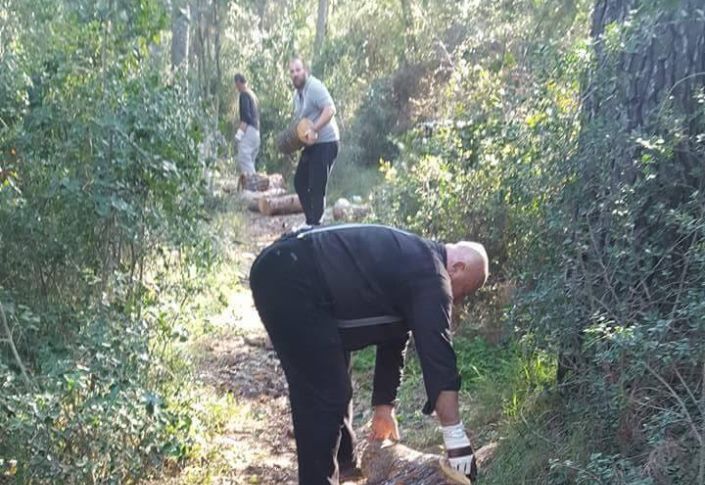
What do you think sets Association MoSt apart from other organizations in your area?
Đordana: We have stayed loyal to our mission, true to ourselves, free in developing programs and services tailor-made for our beneficiaries and their needs, committed to our work, and creative in the ways we include volunteers and citizens in our public humanitarian initiatives and campaigns.
We have brought the concept of helping and caring for marginalized people closer to everyone and opened a possibility for everyone to become a philanthropist in a simple way. People have recognized that, which is why our public initiatives have become massive.
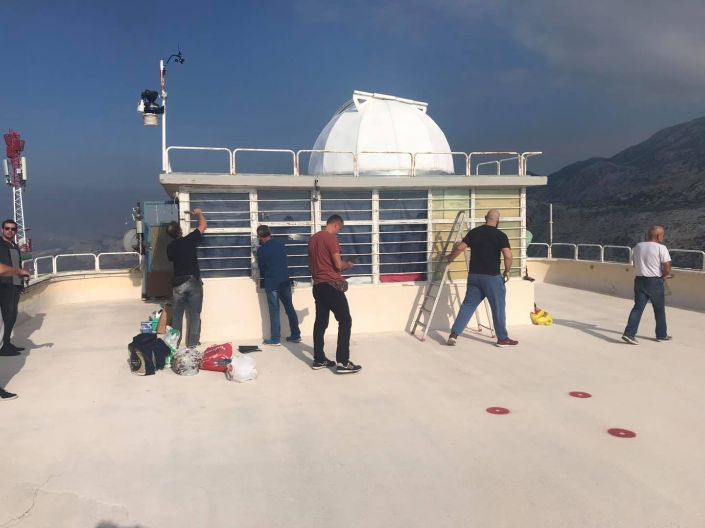
What are the greatest achievements of Association MoSt so far, and what else do you plan to achieve in the future?
Đordana: The greatest success and value are the concrete assistance we have provided to those in need – thousands of young people we have helped, enabled them to continue regular education, supported them in growing up and prevented them from becoming repeat offenders, helping numerous families have a better life, and helping thousands of people living in the street and in dire poverty to survive, reintegrate and resocialize.
For us who have been here from the start, the greatest value is the people who have worked in MoSt, who have helped, volunteered and donated – some of them, for more than ten years. We also consider it a success that our activism has reduced the amount of prejudices towards the groups of our beneficiaries, who are stigmatized and deeply marginalized in the society.
MoSt has been recognized in the public and at the national and international level for its actions, we are a reliable partner and associate to many civil society organizations and institutions, we have created several networks through which we have influenced key changes of laws, which improved the quality of life of the homeless.
In each year of our activity, we want to make a step further, no matter how big or small – it is important to move forward.
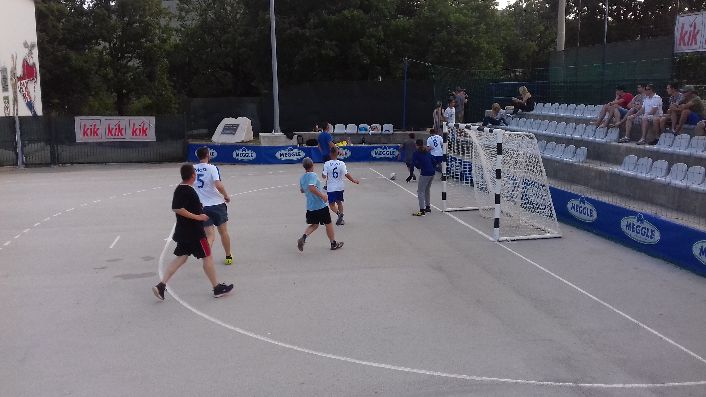
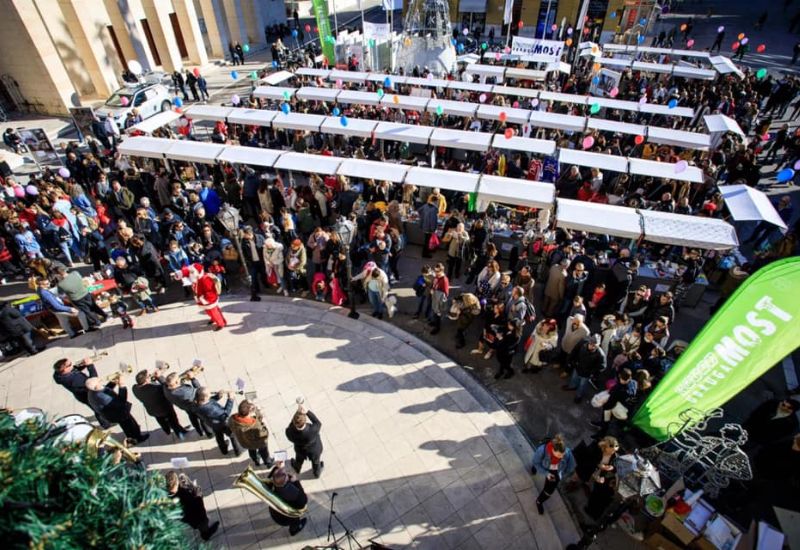

Leave a comment